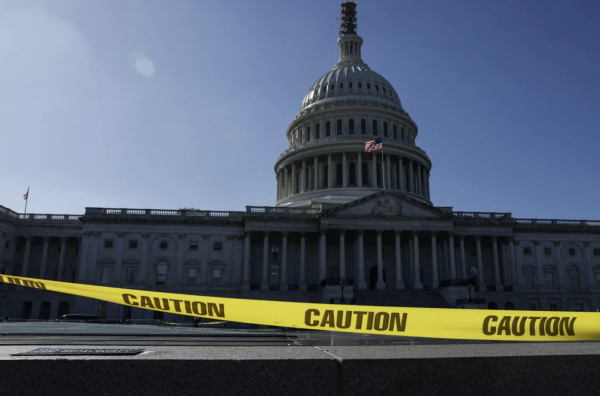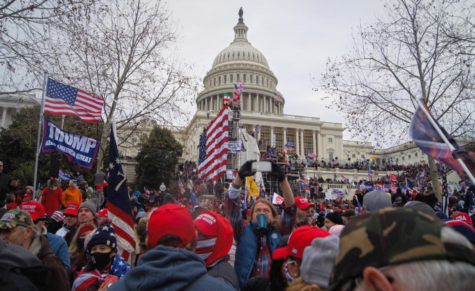Casting a conscious ballot: more important than ever
With all of the discussion surrounding the 2016 presidential election, it’s hard to believe that the primary votes don’t even begin for another two months. Because of this, it will be a while before the public begins to see the two major party nominees duke it out against each other. For now, the American public must endure a series of debates among candidates of the same party in an attempt to garner support to eventually gain the nominations of their respective groups. In both the Democratic and Republican primary debates, we’ve seen candidates take one of two approaches: either making a break for an extremist view in order to distinguish themselves from the other contenders, or attempting to establish a moderate persona.
Regarding the GOP candidates who take a more extreme approach, we see the egocentric Donald Trump and monotonous Ben Carson, the two front-runners thus far in the electoral process. Trump has repeatedly emphasized his desire to build a wall to prevent illegal immigrants from entering the country, and Carson has stressed that easier public access to guns can all but solve ISIS. Within the Democratic party, Bernie Sanders, a self-described “democratic socialist,” has emerged as an extremely liberal alternative to front-runner Hillary Clinton (more on her later) who only slightly reminds us all of our crazy hippie uncles.
These four candidates could not disagree more on the key issues that have come up during this election cycle. They are by no means united in any way beyond their strong presence in the polls among voters. All four have gained a reputation for “saying what others are too scared to say” regardless of how they express these views. However, voters in the primary election should be wary of how these candidates might fare in the general election come November.
Though it is easy to be excited (depending on where you stand on the political spectrum) about the possibility of Trump, Sanders, or Carson winning the presidency, the probability of them beating a more moderate option, like John Kasich or Clinton, seems increasingly unlikely.
Take Trump, for example. Everyone’s favorite “outsider” who always appears to be sucking on a lemon has seen a drop in the polls with each Republican debate in the last month and a half. Though many find his approach to politics amusing, or see his demeanor as worthy of the nomination, Trump has faltered when pressed on questions of policy. Specifically, candidates like Marco Rubio and Carly Fiorina have refuted his plan to build a wall along the southern border of the United States by dismissing it as impossible or a waste of resources. While intraparty debate is, well, a part of these debates, Trump’s fellow Republicans raise valid concerns about his ability to contest the Democratic nominee should he win his party’s favor. Carson has encountered similar resistance, namely on his tax policy, which he has repeatedly described as a flat-tax based on tithing systems from the Bible. While a proposed flat tax plan is not unique to Carson, the biblical foundations of his plan are bound to alienate Christians and non-Christians alike, as many will make either an argument for separation of church and state or for the notion that such a policy is not suited to 21st-century life.
With so many GOP candidates vying for the nomination, it is easy to lose track of who the moderate candidates are. Jeb Bush, Fiorina, and Rubio emerge most often in such discussions, and I would concur that these three represent the most electable options within the party. Should Trump be granted the nomination, it is difficult to see how he would win against the likes of Clinton, a candidate who will swing votes from more moderate Republicans in addition to her own Democratic party. The same could be said for an election between Sanders and Rubio, inverted with regard to party lines.
So, as the primary elections loom ahead of us this spring, I urge eligible voters within the Westminster community to consider how their chosen candidate will fare in the general election come November. This is not an attempt to weed out voters of more extreme candidates – I myself will be voting for Bernie Sanders – but simply to reinstate the value of a conscious ballot, to encourage our school community to make the best decisions we possibly can at the polls as part of the future of our country.




